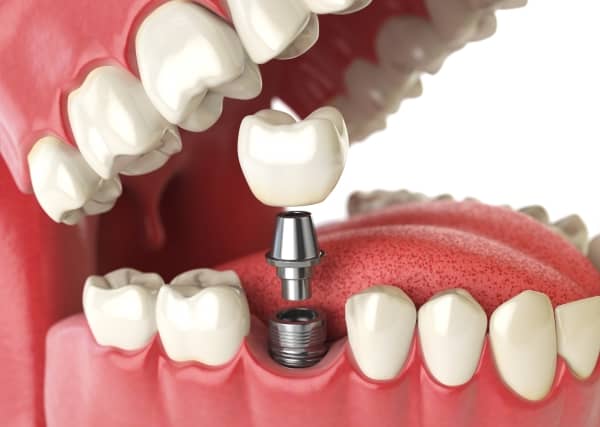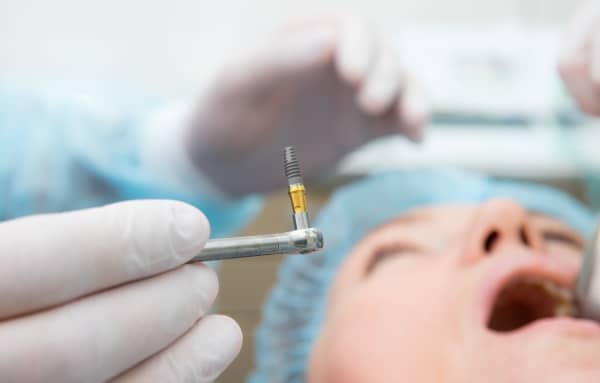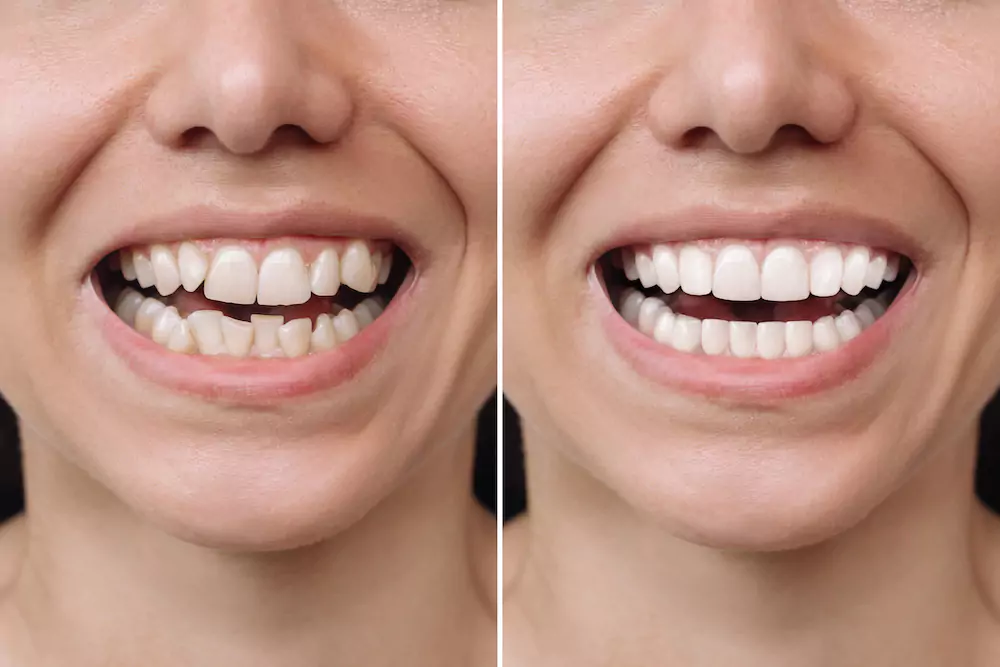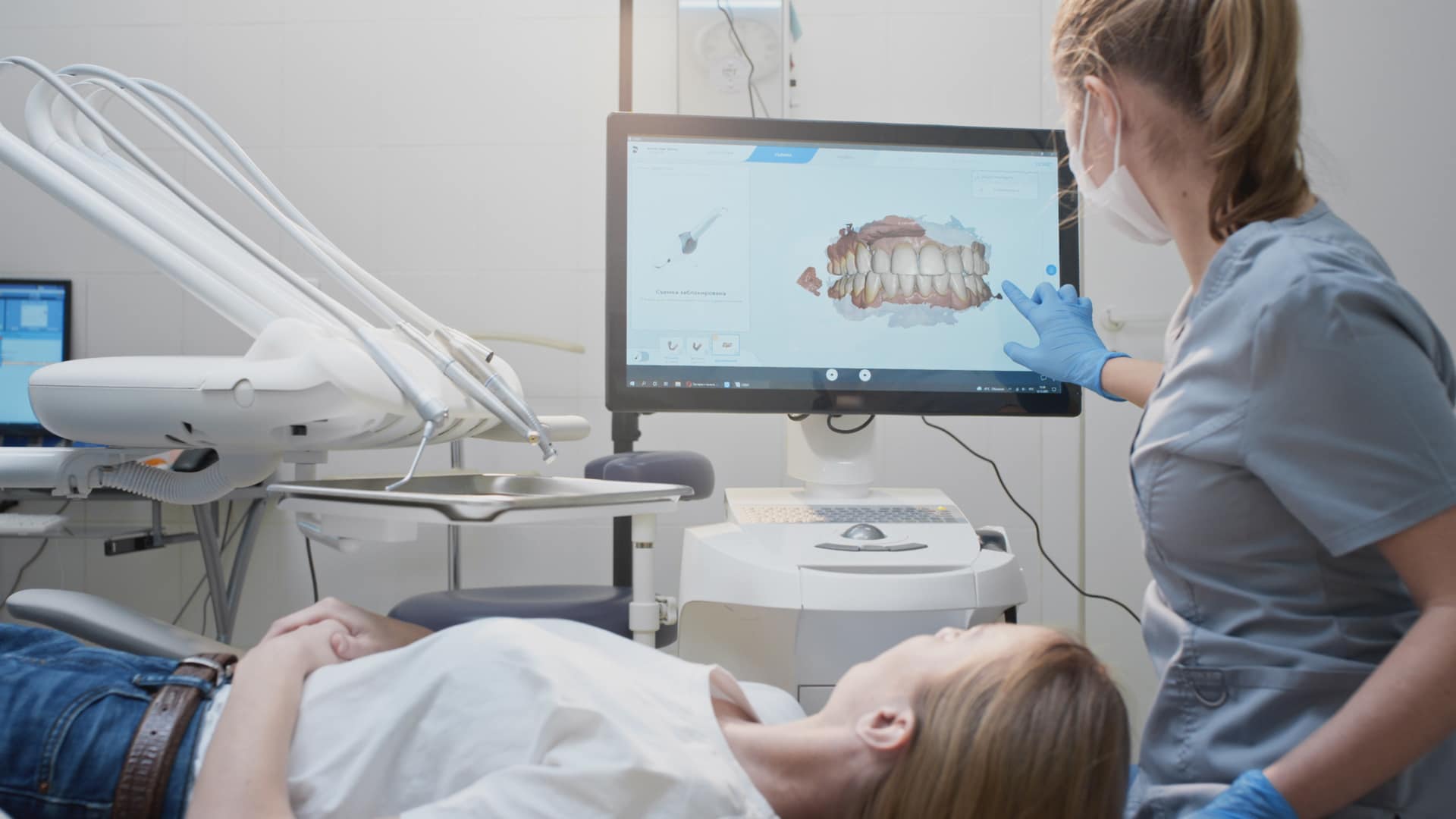
All About Dental Implants
Missing teeth can cause issues with chewing, eating, talking, and self-esteem, along with putting you at risk of serious oral health problems. Fortunately, there are a variety of easy, effective solutions to missing teeth, including dental implants.
Here, we’ll discuss what a dental implant is, the benefits of dental implants, and how to know if you are a good candidate for dental implants.
What Is A Dental Implant?
A dental implant is a permanent solution to replacing a missing tooth or teeth. Dental implants are tiny screws or posts that get surgically inserted into the jawbone to serve as an artificial tooth root.
The dental implant is then covered with a dental crown that matches your natural teeth. The result? Artificial teeth with look and function just like natural teeth.
What Are the Benefits of Dental Implants?
Dental implants fuse with the jawbone and become permanently fixed in place. They are durable, long-lasting, and serve as an ideal solution for individuals suffering from tooth loss.
Dental implants feel, look, and function just like natural teeth. Dental implants also stimulate the jaw and surrounding tissues to prevent the bone loss that typically occurs with tooth loss.
Dental implants also eliminate the open space that a missing tooth leaves behind. This open space allows surrounding teeth to migrate toward it, creating gaps that can trap debris and contribute to gum disease and decay.
Dental implants offer a variety of advantages since they:
- Are durable
- Are long-lasting
- Are low maintenance (care for dental implants is similar to caring for your natural teeth)
- Do not need to alter surrounding teeth to be placed
- Offer a longer lifespan than dentures or bridges
- Allow you to eat and chew normally
- Look and function like natural teeth
What Is Involved in a Dental Implant Procedure?
Dental implants are small screws constructed of durable material, such as titanium, which are surgically inserted by a dentist into your jawbone. These posts serve as a permanent attachment for an artificial tooth.
The procedure is typically completed in several visits and takes about six months in total. The total length of treatment varies based on the individual.
The dental implant procedure involves:
- X-rays and scans to analyse your jawbone, identify any underlying disease, pinpoint decay, and ensure you are a suitable candidate for dental implants
- The administration of an anaesthetic
- Surgical placement of the titanium implant into your jawbone
- A temporary crown is placed on top of the gum to let the healing process begin
- Osseointegration (the fusion of the screw into the jawbone) begins occurring and takes roughly 3 to 6 months to complete
- Once the implant is stabilised, a mould of your mouth is taken to produce a custom dental crown
- The temporary crown is replaced with the personalised permanent crown
Who Is a Good Candidate for Dental Implants?
The ideal candidate for dental implants will have good overall health, adequate bone density, good oral health and hygiene, healthy gums, and good jaw bone structure.
Before dental implant treatment, any issues with periodontitis, bone loss, or other oral health conditions must be addressed.
How Long Do Dental Implants Last?
Because dental implants fuse directly with the jawbone, they are intended to form a permanent bond. Their titanium construction also prevents them from decaying like natural teeth.
When cared for properly, dental implants should last for a lifetime. However, the crown attached to the dental implant may need to be replaced after 15 to 20 years.
Immediate Aftercare for Dental Implants
Your dentist will provide you with a detailed post-treatment care plan for dental implants. Some swelling and discomfort are normal during the first 24 hours after treatment.
Aftercare tips for dental implants include:
- Bite gently on the sponges placed in your mouth to help control bleeding
- Keep your head elevated for the first 8 to 12 hours after surgery
- Avoid moving around too much
- Place an ice pack on your face every 15 minutes or as needed
- Consume only soft foods for the first 24 hours after the procedure
- Take any medications prescribed by your doctor and only use as directed
- Avoid rinsing your mouth for 24 hours after treatment
- Have a trusted friend or family member drive you home after the procedure
Tips on How to Take Care of Dental Implants
Dental implants are a low-maintenance, long-lasting dental solution. Caring for dental implants is similar to caring for your natural teeth. A good oral hygiene routine goes a long way in preventing problems and keeping both your dental implants and natural teeth healthy.
To care for dental implants, follow these tips:
- Brush twice a day with a soft-bristled toothbrush
- Floss at least once a day
- Avoid abrasive, harsh products
- Avoid hard or sticky foods such as caramels, hard candies, crusty bread, etc.
- Do not chew on non-food items such as pens or ice cubes
- Do not smoke, especially within the first 6 months of getting dental implants
- Avoid or limit alcohol consumption, particularly during the first 6 months after getting implants as it may impair healing
- Attend regular dental checkups
How Much Do Dental Implants Cost?
The cost of dental implants varies based on the number of implants you need, the location of the dental implants, and the complexity of the procedure. Contact us for a free consultation to get an exact quote on the cost of a dental implant.
Are Dental Implants Right for Me?
If you would like to find out more about dental implants and whether or not you are an ideal candidate for the procedure, reach out to the dentist Canning Vale trusts to deliver quality outcomes. We will gladly discuss the procedure with you, answer any questions, and schedule a consultation.
During the consultation, we will assess your bone density, check the integrity of your teeth and gums, evaluate your bone structure, record your medical history, and determine if you are a good candidate for dental implants.
Once we determine a dental implant is an ideal solution for your missing tooth, we’ll create a treatment plan that is tailored to your specific needs and get you on your way to a strong, healthy, beautiful smile.





